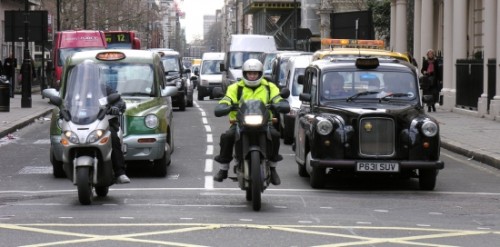With the supermarket petrol price war raging on, it can be difficult for drivers to choose the filling station that gives them the best deal. The fluctuating cost of wholesale oil also plays a role in this as petrol prices vary month to month, meaning that anyone not keeping a close eye on the market can often find themselves paying over the odds to fill their vehicle
Yet according to the AA, even the price drop by supermarkets has not been enough to ensure that British motorists are acquiring their fuel at a fair cost. In the past month the price of a litre of petrol fell by 3 pence, but due to a dip in wholesale petrol costs across Europe this price drop should have been closer to 11 pence per litre.

Today, motorists and businesses will pay 135.08 pence per litre for unleaded fuel compared to 138.95 pence per litre only a month ago, while diesel has dropped from 143.74 pence to 141.89 pence per litre since mid-October. However, if British fuel retailers had passed on the wholesale oil price drop, unleaded petrol would have fallen to under 130 pence per litre for the first time since February 2011.
The AA expressed disappointment that the idea of an investigation into the price of fuel by the Office of Fair Trading has not been enough to deter pump profiteering.
They say; “The conditions that led to drivers and businesses being short changed at the pump in the spring have happened again.”
The AA also noted that the “postcode lottery” was still in place when it came to fuel prices, as there are marked differences between the costs being charged in different areas of the country.
At the moment, Yorkshire and Humberside are the cheapest for both petrol and diesel, at an average of 134.3 pence per litre and 141.0 pence per litre respectively. Yet travel to the most expensive place in the country for petrol, which is the South East, and drivers are paying an average of 135.7 pence per litre.
Meanwhile, in Northern Ireland, drivers wishing to fill up on diesel will pay around 142.6 pence per litre, showing that there is clearly an unfair system in place when it comes to fuel retailing.
Chairman of the Petrol Retailers’ Association, Brian Madderson, claims that independent retailers are attempting to keep costs low for motorists but are being hindered by supermarkets and motorway service stations.
He says; “Petrol prices have not come down as much as wholesale prices. The reason for this, we believe, is that the hypermarkets are hanging up with higher prices than usual.
“Last week, we issued a press release saying that for the first time in many months, independent forecourts were actually pricing petrol cheaper than many of the supermarkets.
“There is certainly, we would concede, something very strange when you have got motorway service areas still pricing petrol at 147.5 pence a litre.”
However, being ripped off at the pump has been the least of Britain’s motorists’ worries this week, as much of the news regarding fuel has centred around the proposed fuel duty rise due to come into effect in January. Labour’s Commons motion to have the 3 pence per litre rise deferred was defeated in Parliament, yet motorists can still cling on to the hope that Chancellor George Osborne will postpone the increase as part of his autumn statement next month.

Asda chief executive Andy Clarke has added his voice to the numbers calling for a scrapping of the fuel duty rise, as he believes that it would be highly difficult for families and businesses to afford due to rising energy costs. He also claimed that disposable income is once more becoming an issue for Asda customers.
He said; “Our latest income tracker out today shows that after a period of slight improvement, disposable income is more or less flat again this month.”
However, AA president Edmund King believes that drivers should be concentrating on achieving a fair price at the pumps rather than being distracted by the fuel duty issue.
He says; “Recent political focus has been on the January fuel duty increase, either ignoring or unaware that duty’s ugly sister, unrestrained wholesale prices, has been running rampant in the fuel market.
“The Government momentarily had a grip of this monster when the previous transport secretary called in the industry to agree wholesale price transparency.
“This initiative stalled when the Office for Fair Trading called for information on road fuel pricing – to which the industry has responded by pumping up wholesale prices and then not passing on cost savings in a timely fashion.”
Only four years ago, in November 2008, petrol cost 94.9 pence per litre and protests were sparked at the prospect of this rising to £1 per litre. Now, with motorists paying an average cost of 135.08 pence per litre, the question is surely when, rather than if, the nation’s drivers will stand up and demand fairer fuel prices from an industry seemingly keen to profiteer at every turn.
Do you think a regulatory body would discourage retailers from profiteering at the pumps, or would it simply be a case of finding loopholes in order to raise prices still higher?
Should fuel duty be increased by 3 pence per litre this coming January or are motorists already paying over the odds to fill up their cars?